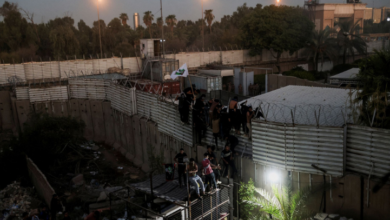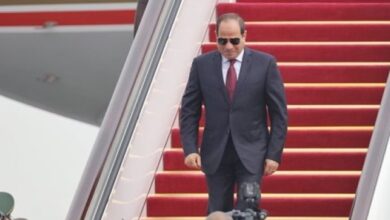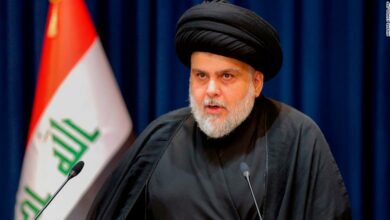Baghdad–Iraq’s parliament approved Prime Minister Nouri al-Maliki and his new government Tuesday, nine months after an inconclusive election left politics in limbo and delayed investments to rebuild the country after years of war.
Lawmakers voted Maliki and a new multi-party slate of ministers into office, elevating Oil Minister Hussain al-Shahristani to deputy prime minister for energy, and leaving in place Kurdish veteran Foreign Minister Hoshiyar Zebari.
Highlighting the ethnic and sectarian divides that pervade the war-ravaged country, parliament had to postpone the vote Monday after last-minute factional disputes and political horse-trading over posts delayed the government’s formation.
As Maliki read out the chosen ministers’ names one by one, Parliament Speaker Osama al-Nujaifi scanned the chamber for raised hands and said “approved by the majority” each time. The speaker did not ask for a show of hands from those opposing the candidate or abstaining from the vote.
In separate votes, parliament approved three deputy prime ministers as well as other Cabinet ministers and the government’s program. The government was then declared formed with Maliki as the prime minister.
Maliki acknowledged his ministerial list was not perfect. “I do not say that this government, with all its formations, satisfies its citizens’ aspirations, nor the political blocs,’ nor my ambition, nor any other person’s ambition, because it is formed…in extraordinary circumstances,” he told lawmakers.
“This is what we have, and what we have could be better than what we had if we stood by our decisions,” Maliki said.
He vowed to create a government that would combat terrorism, address the still-festering sectarian divisions and repair relations with neighboring, Sunni-dominated Arab countries, who are largely suspicious of the Shia-led government.
Former Prime Minister Iyad Allawi, who failed to gain enough support for a majority after his cross-sectarian Iraqiya bloc won the most seats, told the assembly his Sunni-backed coalition would participate fully in the government.
Allawi, a secular Shia, has said he will join the government as head of a new national strategic policy council.
Two female lawmakers protested at Tuesday’s assembly against the absence of women in the new Cabinet. The new government includes a lone woman who is a minister without portfolio.
Bushra Hussein Saleh is a deputy from Fadhila, a small Shia fundamentalist party that is a member of the National Alliance grouping of Shia parties.
Maliki pointed to the lack of women candidates as a reason for the delay.
“I find myself obliged…to wait for the political entities to present women candidates,” he said.
US President Barack Obama praised the formation of the new Cabinet. “Their decision to form an inclusive partnership government is a clear rejection of the efforts by extremists to spur sectarian division,” he said.
Turkish Prime Minister Recep Tayyip Erdogan said Turkey was “pleased” that Iraq’s new government has been approved. “Iraq will make a significant contribution to regional peace by constructing its internal peace.”
Britain also welcomed the move, with British Foreign Secretary William Hague saying it would allow Baghdad to start tackling the country’s problems.
EU foreign policy chief Catherine Ashton said, “I wish to congratulate Prime Minister Maliki and all political entities for having reached this agreement.” A spokesman for UN Secretary General Ban Ki-moon described it as “a major step forward in Iraq’s democratic progress” while calling on the new government to get to work on national reconciliation, reconstruction and stability.
Maliki has yet to decide on permanent choices for 11 positions, including sensitive security-related ministries such as defense and interior. Acting ministers were put in charge.
The prime minister promoted deputy oil minister Abdel Kareem Luaibi to minister and made prominent Sunni leader Rafie al-Esawi finance minister.
“The deal the parties worked out is rather elaborate but the critical thing is that they were able to get to this point through peaceful negotiations without any return to large-scale violence,” said Shadi Hamid, director of research at the Brookings Doha Center.
“That said, power-sharing deals like this one tend to be quite fragile and so the next few months will present a crucial test for the rival blocs.”
International investors are watching developments in Iraq’s energy sector with great interest as the country embarks on an ambitious program to exploit its vast oil resources.
While Shahristani was minister, the Oil Ministry reached a series of deals with oil majors that could boost Iraq’s output capacity to 12 million barrels per day, rivaling global leader Saudi Arabia, from about 2.5 million barrels per day now.
A power-sharing deal 10 November between Shiite, Sunni and Kurdish blocs put Maliki on track for a second term as prime minister. The pact returned Kurd Jalal Talabani as president and made Nujaifi, a Sunni, parliament’s speaker.




